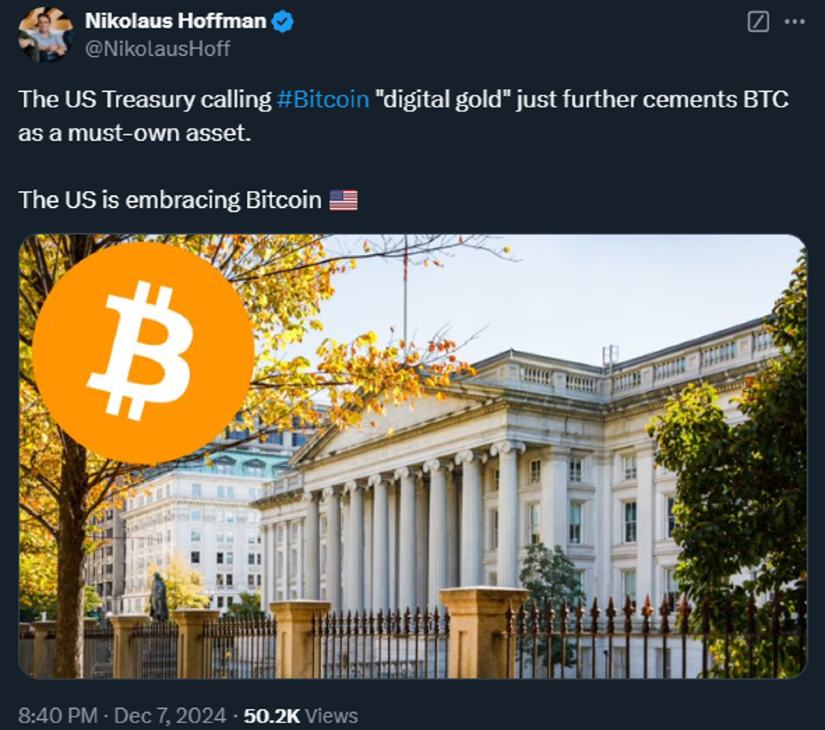Once viewed as a speculative asset, Bitcoin finally has its seat at the table as governments and institutions move from skepticism to full adoption.
The world’s first decentralized digital currency, which hit an all-time high this month by breaking through the $100,000 mark to a record $107,000, shows Bitcoin’s evolution from a niche financial asset to a mainstream investment that is now drawing interest from governments, financial institutions and investors worldwide.
Boaz Sobrado, a London-based financial technology analyst, drew attention to the change: “Bitcoin has evolved from a tool for dissidents and illegal transactions to an asset that central banks need to seriously consider.”
Governments are joining the Bitcoin bandwagon
Several governments have also begun hoarding Bitcoin, either through strategic reserves or through confiscations of the asset. In total, the United States alone has seized more than 215,000 Bitcoins from criminal investigations since 2020, currently worth almost $21 billion, according to crypto analysis firm 21.co. El Salvador, the first country to adopt Bitcoin as legal tender, has built up $600 million in reserves.

Source: X
El Salvador’s approach has inspired other nations, although not without its challenges. As part of a $1.4 billion loan agreement with the International Monetary Fund, the country recently agreed to privatize its national cryptocurrency wallet Chivo and make Bitcoin adoption by companies voluntary.
Bitcoin ETFs and Institutional Support
The U.S. Securities and Exchange Commission has approved Bitcoin ETFs that allow investors to gain indirect exposure through traditional…


